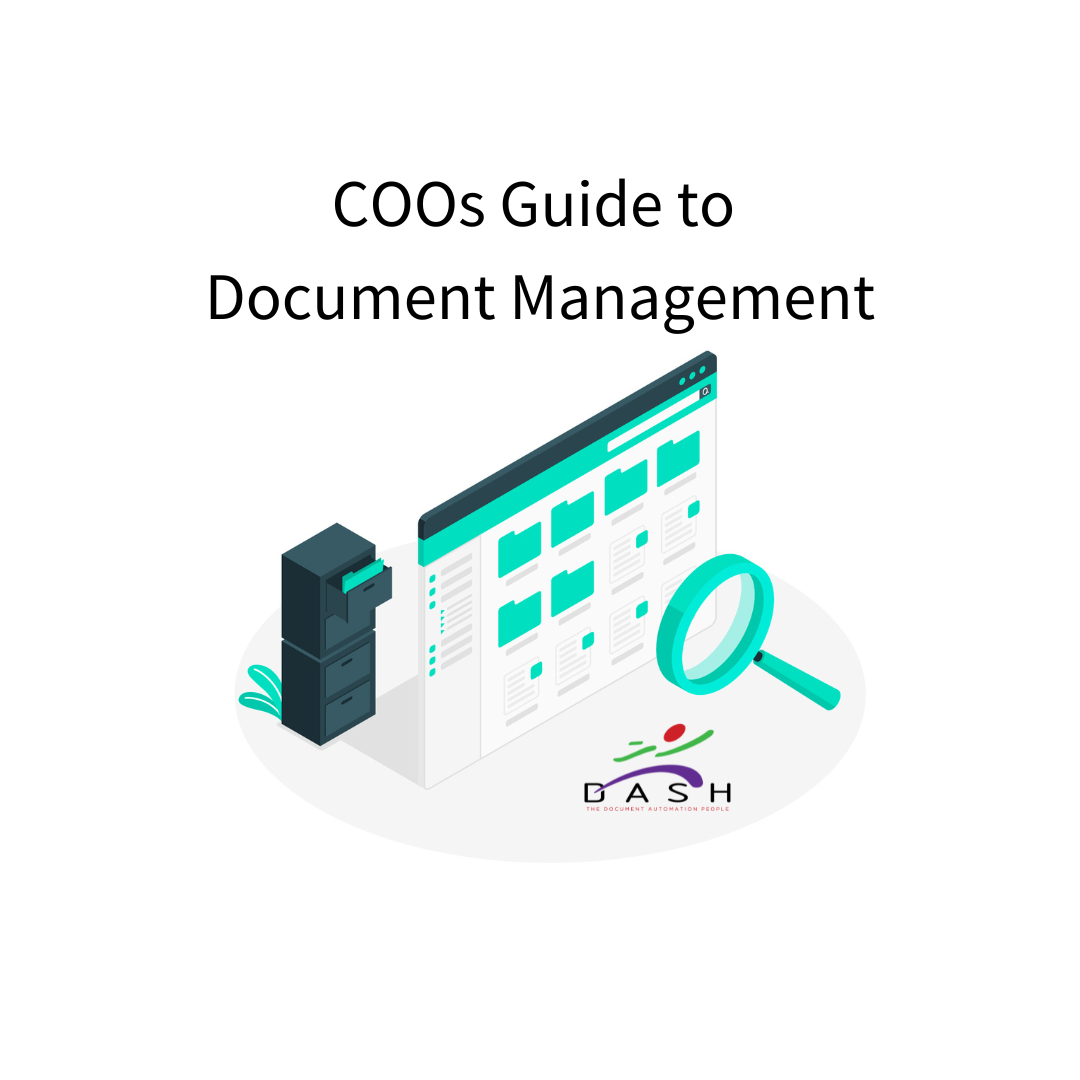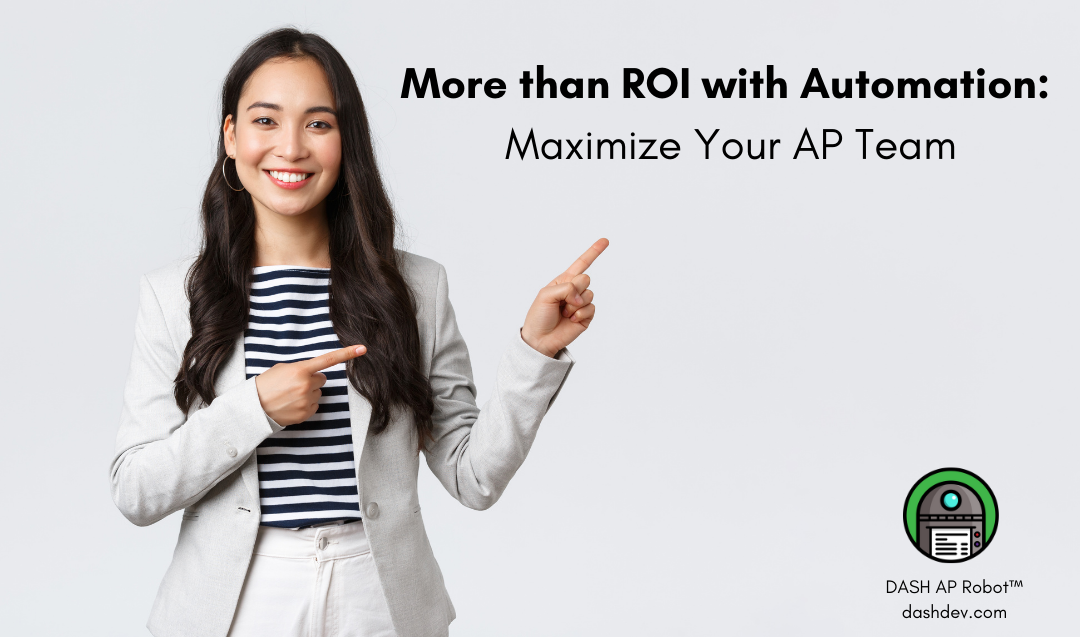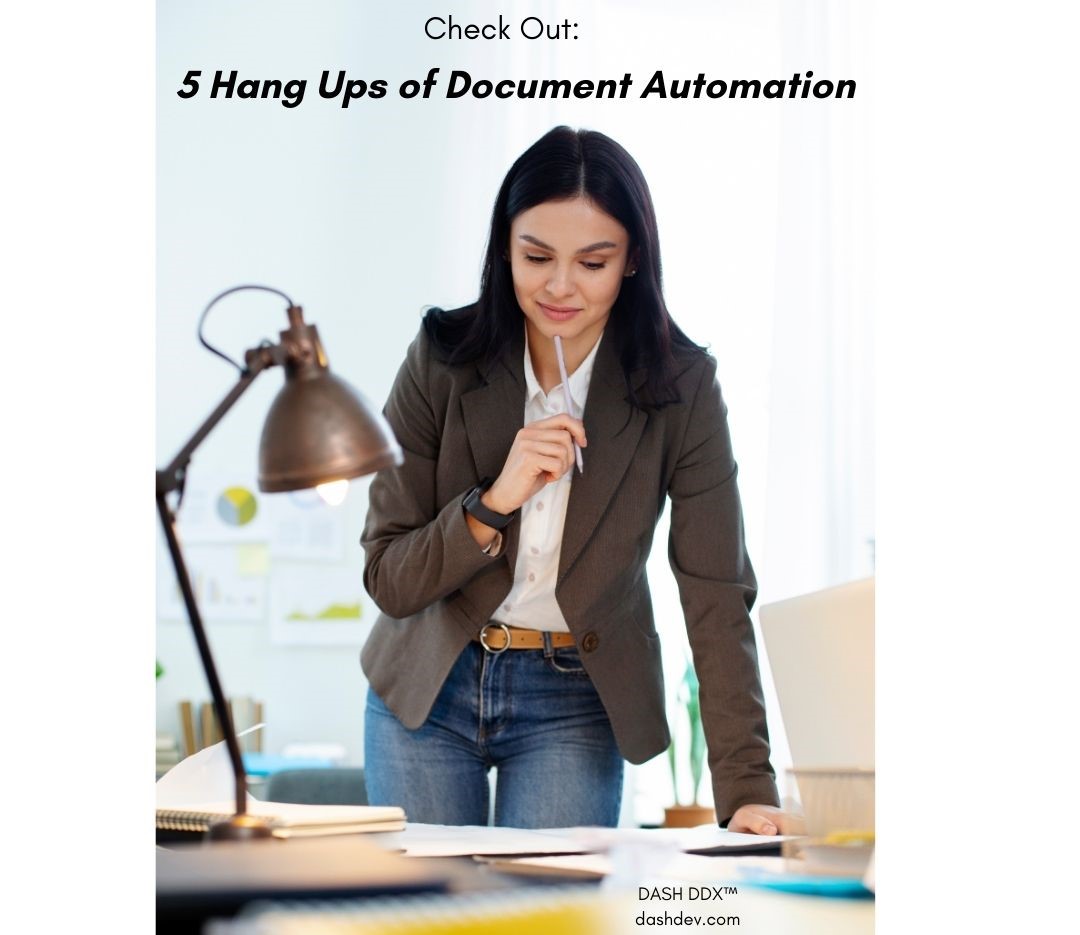Unleashing the Power of AI in Accounting: Revolutionizing the Future
Unleashing the Power of AI in the Accounting World
Artificial intelligence is revolutionizing the accounting industry and gaining momentum as the ultimate tool for efficient and accurate financial management. AI algorithms and machine learning capabilities seamlessly streamline complex accounting processes, freeing up valuable time and resources for businesses to focus on strategic decision-making.
By harnessing the immense power of AI, businesses can unlock a new era of productivity and innovation. With AI algorithms constantly learning and adapting to changing financial landscapes, businesses can stay ahead of the curve, make data-driven decisions, and predict future trends with unprecedented accuracy. Embrace the future of accounting and seize the opportunity to streamline your financial processes, reduce costs, and drive overall business growth like never before.
Here at DASH, we’ve witnessed numerous small to medium-sized businesses discover the power of how AI can revolutionize their accounting world. Some with small teams, some with large ones. Everyone can benefit from increased accuracy, in less time.
AI has evolved into a powerful ally for accountants.
Not only can AI streamline complex accounting activities, but it can free up valuable time and resources for your team to focus on strategic decision-making tasks. It’s a win-win. Your business gets better, and your team gets better.
The days of an accountant hunched over a 10-key pad are numbered. AI in accounting is not about replacing accountants; rather, it’s about empowering financial professionals to work smarter, faster, and with unparalleled accuracy.
AI elevates the role of accountants, empowering them to add significant value to their organizations.
Don’t get me wrong. It’s not all fun and games to start. You might have internal processes that need to be cleaned up to automate anything. You might have tasks and systems that need to be changed or replaced to make automation work. Start there. Fight those battles and win your team over for the long-term outlook. Everyone might not jump on board immediately, but you can win them over with new projects and tasks that aren’t just sitting at a computer entering numbers all day, they can do bigger and better projects, and possibly use more of their skills and talents for good!
Accountants can leverage AI in various ways to enhance their productivity, accuracy, and decision-making capabilities. With this emerging technology, the applications of AI are only limited by the user’s imagination. Embracing AI in accounting isn’t about replacing human expertise; it’s about unlocking the full potential of financial professionals and paving the way for a more efficient and prosperous financial future.
Here are 5 key ways accountants can use AI:
- Automation of repetitive tasks
One of the most immediate and tangible impacts of AI in accounting is the automation of repetitive tasks. Activities such as data entry, invoice processing, and reconciliations, which can be time-consuming and prone to human errors, are efficiently handled by AI-powered systems. By automating these tasks, accountants can take some drudgery out of their day and direct their focus toward more strategic and value-added activities requiring human judgment and expertise.
- Data Entry: Automate the tedious task of data entry by extracting relevant information from invoices, receipts, and other financial documents with AI. This saves time and reduces the risk of manual errors.
- Bookkeeping Tasks: AI can handle routine bookkeeping tasks, such as categorizing transactions, reconciling accounts, and generating financial reports, making the process faster and more efficient.
- Invoice and Payment Processing: AI-powered systems can streamline invoice processing and payment reconciliation, making financial operations more effective.
One specific example of AI-assisted data entry is how we have harnessed the technology at DASH. Our AP Robot allows AI to do the more repetitive and mundane tasks for you, such as pulling all the necessary data from an Invoice for you. AI assists by providing suggestions for input into the data entry process. The person entering invoices can verify all the information is correct and make modifications as necessary. This approach removes the tedious task of reviewing the invoice, searching for pieces of information, and then entering it all.
- Enhanced data analysis and decision-making
AI-powered analytics tools can process vast amounts of data in real time, identifying trends, patterns, and anomalies that may not be apparent through traditional methods. AI assistance can comb through data at much higher speeds than we can and highlight areas of interest for a person to go back and review in-depth. Manual analysis takes more time to build tables or graphs to understand patterns, but AI does this step automatically, saving time for more detailed analysis. This enhanced data analysis empowers accountants to make data-driven decisions, leading to more accurate financial forecasts, better risk assessments, and improved overall business performance.
- Data Analytics: AI tools can analyze large volumes of financial data quickly, enabling accountants to identify trends, patterns, and insights that may not be apparent through manual review.
- Financial Reporting: AI-powered systems can generate real-time financial reports, allowing accountants to access up-to-date information promptly and make informed decisions based on the latest data.
- Data Visualization: AI-driven data visualization tools can help accountants present financial information in a visually appealing and easy-to-understand manner, aiding stakeholders in making informed decisions.
- Improved fraud detection and security
Financial fraud poses a significant threat to businesses, but AI is proving to be a formidable defense. AI algorithms can quickly detect irregularities in financial transactions and identify potentially fraudulent activities. Moreover, AI continuously learns from new data, enabling it to adapt and evolve to detect increasingly sophisticated fraud attempts. By minimizing financial fraud, AI enhances the trust and credibility of the accounting profession, safeguarding both businesses and their stakeholders.
- Fraud Detection: Suspicious transactions and anomalies can be swiftly identified as potential threats to the organization and flagged for additional review or human intervention with AI algorithms and other analytical tools. If a duplicate invoice is presented to the Robot, it is flagged and brought to the user’s attention for human review.
- Security: As AI continues to evolve and learn from new data, it will be one of the best resources to detect increasingly sophisticated fraud attempts.
- Compliance and regulation adherence
Staying compliant with ever-changing financial regulations is a complex challenge for businesses. AI can assist by constantly monitoring regulatory updates and ensuring financial operations adhere to the latest standards. This minimizes the risk of non-compliance, avoiding potential fines and legal repercussions.
- Compliance and Regulations: AI can assist accountants in staying compliant with frequently updated financial regulations by monitoring transactions and highlighting any discrepancies.
- Regulatory Reporting: Ensure accurate and compliant reports for governing authorities are generated by using AI-powered tools to draft financial statements and other required reporting.
- Tax Planning and Reporting: AI can aid accountants in identifying potential tax-saving opportunities and calculating tax liabilities more efficiently.
- Continuous professional development
As with any emerging technology, concerns surrounding AI are plentiful. However, addressing these concerns head-on is essential for embracing the full potential of AI. AI does not replace human accountants or staff in general but empowers them by augmenting their capabilities and removing repetitive tasks.
As AI becomes an integral part of the accounting function, accountants must adapt and develop skills to remain relevant and competitive. Embracing AI requires using AI-powered tools efficiently and understanding AI-generated insights. Additionally, these key employees should focus on honing their analytical and strategic thinking abilities, as these skills will complement AI technology and enable accountants to provide unique value to their organizations and clients.
DASH is here to help you transition from manual to automated.
Our goal is to create a world-class product that is affordable, and customer driven.
Don’t miss out on the incredible potential that AI brings to the accounting landscape [it’s not as scary as it sounds!]. Join the ranks of forward-thinking businesses that are already reaping the benefits of this game-changing technology. Step into the future of financial management and position your company at the forefront of innovation, efficiency, and success. Embrace AI in accounting today and revolutionize the way you do business tomorrow.
Unleash the potential of AI-driven accounting software such as the DASH AP Robot, designed to effortlessly handle repetitive tasks such as data entry, invoice processing, and financial analysis. With its unrivaled accuracy and speed, AI-powered systems provide a level of precision that surpasses human capabilities, ensuring error-free calculations and real-time insights that can significantly enhance business operations.
To learn more about how to implement and get started on your AP Automation journey, contact our team of experts today.
📊 #APAutomation✅
About the Author:
Stephanie is the marketing guru at DASH. For over 20 years, DASH has been authoring, delivering, and supporting DASH DDX™ and DASH AP Robot™, its ERP-integrated software to small and mid-sized manufacturing and distribution companies throughout the USA and beyond.
Let’s chat!
Follow the Dash Blog
Sign up to follow blog posts from Dash





